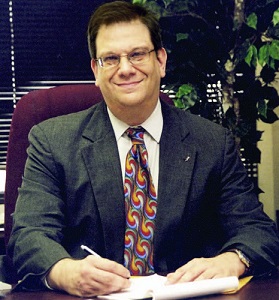August 2016, Vol. 243, No. 8
Editor's Notebook
Editor's Notebook: Mourning the Loss of a Great Man

During these troubled times every day when I go to work it seems our flag is at half-staff. On this day, my heart was at half-staff as I learned that Phil Burguieres died June 30. He was a very special businessman; he was a very special man.
Burguieres had two careers that led him to prominence in Houston. For years he was CEO of several energy companies including Weatherford International, Panhandle Eastern Corp. and Cameron Iron Works where he became one of the youngest CEOs to lead a Fortune 500 company. It was a job that took a heavy toll as during the 1982-83 oilfield recessions he had to lay off two-thirds of Cameron’s 9,000 employees to save the company.
After 19 years, Burguieres left Cameron in 1989 when it was sold to Cooper Industries. In 1990 he was CEO of Panhandle Eastern, a pipeline company in the midst of its own severe financial crisis. Within a year, he left for “health reasons”.
Soon afterward, Burguieres, an admitted workaholic, was hired to run Weatherford, a tubular service company. In 1995, he engineered a merger with competing Enterra Corp. that created the world’s sixth-largest oilfield services company. Again “health reasons” forced Burguieres to leave.
As he recovered his health he consulted for a close friend, energy executive Bob McNair, whose dream was to bring a professional football team to Houston. That came true in 1999 when he bought the NFL’s 32nd franchise.
As limited partner, vice chairman and McNair’s right-hand man, Burguieres assembled a front office business operation that is the envy of the NFL.
This all pales in comparison to his greatest accomplishment: dealing with depression and the debilitating role that it played in his mental health which ultimately forced him from his jobs with Panhandle and Weatherford. It’s an illness that affects millions of people, yet carries unfortunate undertones, including those in the rough-and-tumble world of petroleum.
In a 2008 PBS series, The Faces of Depression, Burguieres said he’d describe his illness as a “brain chemistry imbalance” rather than depression “because it seemed like admitting to weakness, or failing. ..At that time, it was really hard for corporate America to accept depression for what it is: a disease. It’s still difficult for people to define it as such because the stigma associated with the illness is so strong.”
Burguieres estimated half of CEOs at some point face depression. He often received calls and met many CEOs struggling with the illness.
“But it’s still such a secret. And why? Every time I read that somebody has left a corporation for “health reasons” I know exactly what it is: it’s depression. You wouldn’t blame a diabetic for being sick, so why do it to a depressive?”
Burguieres created a “CEO’s guide to depression,” explaining treatment options, making it acceptable for people to seek help and discussing it openly.
“I’m committed to de-stigmatizing depression in the corporate community. Depression is an illness and people can have a genetic predisposition for it. Depression is also chronic and widespread in the executive office because of pressure and isolation, as well as the CEOs’ own unique drive to succeed.
“It’s hard for CEOs who suffer from depression. They’ve got these huge responsibilities, and they’re making $5 million a year. They can’t just quit, and they shouldn’t. But you have to have meaning and balance in your life.”
In 2012, Burguieres fell and suffered a brain injury leaving him largely incapacitated. Our paths had crossed in 1992 and 1995 during interviews for my book, The Oil Makers, Insiders Look At The Petroleum Industry. He was extremely outgoing, direct and decisive. His comments were remarkably prescient, which you expect from such a brilliant person.
Our last meeting was in March 1996 in a bookstore where I was signing The Oil Makers. After two hours I’d sold six books. The store’s marquis posted my name which Burguiere saw as he drove by. He came in, bought four books for his family, gaining my eternal gratitude.
It may not have been important to him, but it meant everything to me. That’s the kind of guy Phil Burguieres was.
“The way I view the world now versus the way I viewed it before is very different. It’s about getting out of myself and focusing on other people. And you can’t just say it. You have to do it and live it.”





Comments